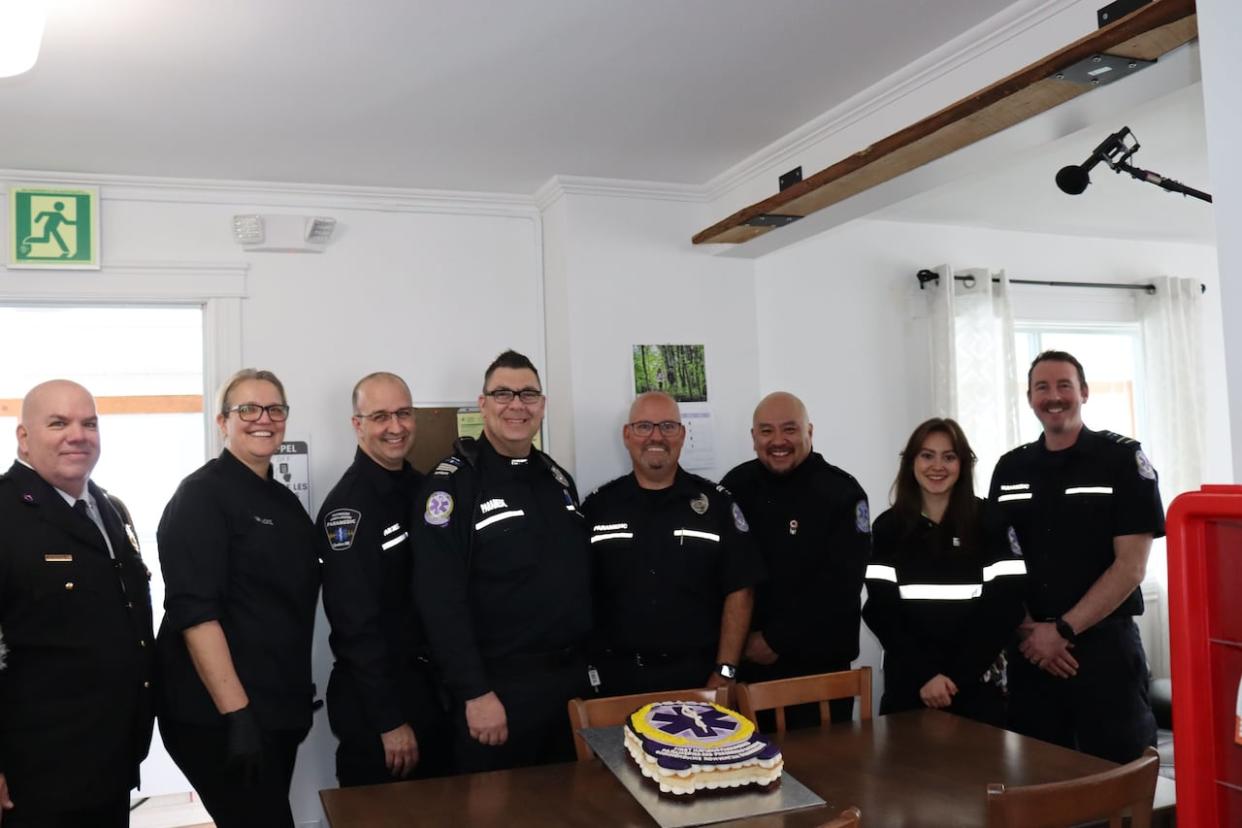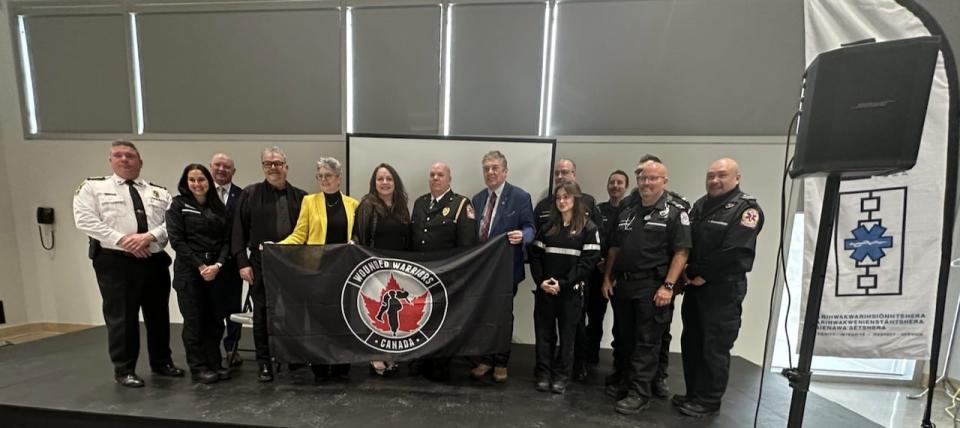New mental health supports available for paramedics in Kanesatake

Paramedic Robert Bonspiel knows first-hand the long-lasting impacts of trauma, but he also knows what a difference mental health support can make.
As the president of the First Nations Paramedics Services, he is looking forward to seeing what a new partnership with Wounded Warriors Canada, an nationally recognized mental health service provider, can do for first responders in his community.
First Nations Paramedics (FNP) is the only private Indigenous-owned company offering ambulance services in Quebec and serves the Kanien'kehá:ka (Mohawk) territory of Kanesatake, northwest of Montreal, as well the neighbouring communities of Saint-Placide and Oka.
Bonspiel said working in a small, close-knit community comes with unique challenges. On his first call on the job, at the age of 18, he had to do CPR on a close friend who had been shot. Decades later, he was still haunted by those images.
"I realise now, years later, that it had to inevitably do with the stress related to that incident," he said.
"When you're transporting individuals or assisting individuals that you know — and in Kanesatake I know everybody — it's very difficult."
The new partnership will bring free trauma-informed workplace training and counselling services to the paramedics at FNP, and their families.
Wounded Warriors Canada began as a charity providing mental health support to veterans and their families, but then expanded in 2016 to offer services to fire, police, paramedics that meet their unique needs as trauma-exposed professionals.
The formalized partnership means it will work with FNP to help tailor support to its needs and rapidly intervene when needed — whether that means group counselling following a traumatic call, training, couples counselling, or funding to support the training of a PTSD service dog.

The partnership in Kanesatake is Wounded Warriors's first with an Indigenous-run agency of first responders in Canada, and its first with a first responder service in Quebec. (First Nations Paramedics des Premières Nations/Facebook)
"If we're not dealing with trauma exposed professionals at their level, around their needs, then we're going to run into problems," said Scott Maxwell, executive director of Wounded Warriors Canada.
"Their workload, the stress, their prolonged exposure to traumatic and very difficult scenes and circumstances.... If we're not providing that important psycho-educational training and resiliency training ... we've seen, unfortunately and sometimes tragically, what can happen when when folks go unsupported."
1st partnership in Quebec
The partnership in Kanesatake is Wounded Warriors's first with an Indigenous-run agency of first responders in Canada, and its first with a first responder service in Quebec.
"It was a historic day for our organization," said Maxwell.
For Bonspiel, mental health support to support the unique experiences of paramedics was missing in the community.
"We don't have the tendency of bringing our problems home in an effort to protect our families and our loved ones, and don't share with them," he said.
"That's not great for us. We have to speak to people who are qualified to listen to, to get those demons out of our head."
He hopes the partnership will open doors to other First Nations first responders across Quebec.
"I believe that this partnership is going to allow us to get to a point where we take away the stigma ... and keeping our paramedics in tip-top shape at all levels."

